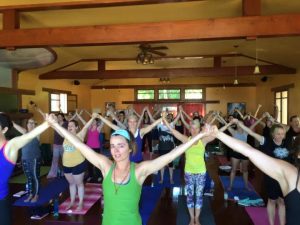By Betty Jo Buro
I chew the inside of my right cheek while I loop from closet to suitcase. Jeans on the bottom. Pajamas next. I’ll save the dress for last. What a relief it would be to sob and fling my clothes in a twisted heap. To keen, like the Irish women in the novels I used to read, to work my way through an entire box of tissues, soaking them with tears and snot. But my mother, whose funeral I’m packing for, had no appreciation for spectacle, and has passed this trait on to me. Perhaps it’s because she had four teenage daughters at one time, and intuitively knew, that if allowed, girl drama plus high levels of hormones could combine and possibly blow the roof right off of our house. Our upset was never rewarded with her attention, and thus suppressed. And now, when I could really use a bout of hysteria, I can’t even cry. Instead, I run my tongue over the shredded skin on the inside of my mouth. I carefully count out the appropriate pairs of underwear, roll and tuck them into the corners, filling the dead space, the way my mother taught me to pack. The eulogy is placed in the carry-on. Just in case.
There are shoe issues. Emma, my oldest, has been charged with carrying her father’s dress shoes in her luggage. He is working in Missouri and meeting us in Boston. She has plenty of room, but resents the idea of those big shoes in with her things. Alice, my younger daughter, disapproves of my shoe choice. She’s scandalized, actually, by my blue Louise et Cie closed-toe sling backs with the 2 and ¾ inch heel. They match the design in my dress perfectly, and even though they’ve had two sleepovers at the shoe repair shop to stretch the toe-box, I love them.
“You can’t wear those shoes to a funeral,” Alice says.
“Why not?”
“You just can’t,” she says, shaking her head. I know she’s referring to the pointy toe, the ankle strap. She thinks they are too sexy. She throws her hands up in a gesture that says, Mothers. They never listen, and walks away. I turn the offending footwear so they are facing in, heel to toe, and place them in my luggage.
The next day, I wrestle the girls out of slumber and into the car for the long drive to the Ft. Lauderdale airport. Twenty minutes into the ride, Emma’s voice from the back seat, “Mom, I forgot my sandals.” She means the ones she needs to go with her dress for the service. If we go back, we will miss our flight. I keep driving. Inside my mouth, I taste the metallic tang of blood.
***
I am three days into my new routine of waking an hour before the sun rises to meditate, pray and write, when I call someone an asshole. I am walking my dog Misty, and we have paused at the top of our street, under the shade of a Banyan tree to greet our neighbor-friends, Karen and McDuff. I have been up for so long the day feels solid, as established as the blacktop under my sneakers, and it’s only eight am. The orange grove across from us and the remnants of night-blooming jasmine carry an almost sickly sweet scent through the air, already thick with heat.
Our backs are to a man on a bike, and we don’t hear him until he is almost upon us. Between ourselves and our dog leashes, we stretch almost across the entire road. “Hello,” he says, but it’s not a friendly hello, or a good morning hello, it’s an, I’m-right-behind-you-you idiots hello, and as we part ourselves so he could ride through, he shakes his head in disgust.
“Bicyclists are assholes!” I call out, my voice ringing out along the quiet street. I am immediately embarrassed. I felt badly about it all day. So bad, that I confess to my friend Ann later that morning when we go for a walk, because along with my writing and meditation, I am also trying to get in 10,000 steps before noon. “I’m not sure where that came from,” I say. I think about what I tell my daughters all the time. There is always a moment, a pause, a space in time, before you act, and thus our actions are also a decision. I tell them this because I want them to know that in every situation they have a choice.
I have been working on metta meditation, a lovingkindness practice. It bestows an intention to be happy, safe, peaceful and well first on one’s self, then a friend, a neutral person, an enemy and finally, to all sentient beings.
It is not lost on me, that I did not simply call the man on the bike an asshole, but all sentient bicyclists. I didn’t just swear, I metta-swore.
***
After my mother dies, sleep becomes elusive. When I close my eyes I picture her life ending. Those last days when her breath became shallow and rapid. Her tiny body overcome with the work of staying alive and dying at the same time. Visions of her oxygen tank, hospital bed and vials of Morphine and Ativan swirl behind my eyes like the tornado scene from The Wizard of Oz.
In meditation, the place between the in-breath and the out-breath can be used as a still point to focus on. My yoga teacher says the in-breath is an opportunity to explore your home. Some say that the end of every out breath is the opportunity to die completely. The Zen master Suzuki Roshi advises, “Sit still, and be willing to die over and over again.” I practice deep breathing in my darkened bedroom at night, in an attempt to disengage my mind from my body, but once I finally fall asleep, I often wake up gasping for air.
***
Nancy’s Pastor, Thomas, corrals my three sisters and I into his office before the funeral while the church fills. He must have sensed we were coming undone, all of us terrified to deliver our eulogies. He pours water from a pitcher into glasses and passes them around. Nancy tries to protest, holding up her bottle of water from home, but Thomas insists. “Drink this,” he says and we do. Later we’ll wonder if he’s laced the water with Xanax, he’s that kindhearted.
“Now follow me,” he says, and he leads us out through the courtyard and to the front doors of the church. Nancy’s friend Brett is singing a solo, and the notes, haunting and lonely, float towards us as we wait. If we try and ask a question, Thomas answers, “Just follow me.” We are getting ready to enter the church, to walk up the center aisle and take our places on the altar. Just before we step into the vestibule, Thomas turns to me and says, “Those shoes are fabulous.”
***
Once home from Boston I am overcome with the need to clean and de-clutter my home. How have I possibly survived this long without alphabetizing my spices? And certainly everyone’s electric toothbrush stand needs to be cleaned with disinfectant wipes. The chaos of my closet is an outright assault. And the baseboards? Don’t even.
***
I don’t plan on taking a nap, but late one afternoon as I walk through my bedroom, threading my way through black Hefty bags slated for Goodwill, it occurs to me that it might feel good to just stretch out for a minute. And the next thing I know the evening light is slatting through my window blinds where the sun has just been. No one–no teenager with a need or a question, no small fluffy dog– has bothered me. And while I lie in that foggy half-sleep I feel something strange yet familiar. I feel rested. I also feel sad. And I think about how grief is like the Bounty Hunter of emotions. How it will find you no matter how hard you try to give it the slip. It will catch you while you scrub the grout on the walls of your shower. It will try to sidle up next to you on your 9000th step.
It disguises itself too, masquerading in the alarm set for 5:30, the worn soles of my walking sneakers, the jars in the pantry, arranged from tall to short, labels out. It’s even in the words I say. Although sometimes an asshole on a bike is just an asshole.
Sometimes grief is a mouth that resembles raw hamburger and a suitcase, efficiently packed.
I move over. I let the sadness climb into bed with me. We stay there together until the dusky light turns to dark.
Betty Jo Buro received her MFA in creative nonfiction from Florida International University in 2015. Her essays have appeared in Hippocampus Magazine, Cherry Tree, Sliver of Stone, The Lindenwood Review, Hunger Mountain and Compose Journal. She can be found on twitter as @BuroBettyjo.


Get ready to connect to your joy, manifest the life of your dreams, and tell the truth about who you are. This program is an excavation of the self, a deep and fun journey into questions such as: If I wasn’t afraid, what would I do? Who would I be if no one told me who I was?
Jennifer Pastiloff, creator of Manifestation Yoga and author of the forthcoming Girl Power: You Are Enough, invites you beyond your comfort zone to explore what it means to be creative, human, and free—through writing, asana, and maybe a dance party or two! Jennifer’s focus is less on yoga postures and more on diving into life in all its unpredictable, messy beauty.
Note Bring a journal, an open heart, and a sense of humor. Click the photo to sign up.



So beautifully written Betty Jo. Glad you wrote this.
Two separate connections conspired to bring me here today. Thank you for these words, this considered description of life, of grieving, of coping.
What a stunning piece of writing. This captures the multiple and often surprising aspects of bereavement so well. Thank you for writing it.